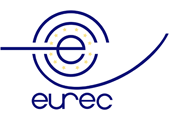menu
- Home
- National Information
- EC-Activities
- EUREC-Activities
- Legislation
- Training Materials
- Literature
- Events
- Newsletter
supported by:

Eurecnet - Training material details
Training material details
The Cambridge medical ethics workbook - case studies, commentaries and activities
Author(s): Parker, Michael; Dickenson, Donna
Document type: Book
Year: 2001
Pages: 374
Source: Publishing house: Cambridge University Press (Cambridge)
Language(s): English
Classification
National background: Great BritainCategory: EU Training Material for Research Ethics
Subject areas: Human experimentation; Biotechnology
Focus: Sub-focus: embedded in medical ethics
Content: Case studies; Cultural specifics; Ethical theories; Important codes; Legal background; Normative reflections
Issues touched: Autonomy, respect, informed consent, subjects unable to consent, role of representatives Beneficence, non-maleficence, risk for the subject Justice, benefits/burdens, research without benefit for the subject, placebos/standard therapy Protection of privacy, data protection, biological material Vulnerable groups, soldiers, prisoners, pregnant women, elderly people International research, research in developing countries Social impact of research, economic benefits, risks for third parties Social background of research, conflicts of interest, researcher vs. doctor, commercialisation Ethics committees, research protocols
Audience: Administrators of research funding bodies; Laboratory workers; Members of ethics committees; healthcare professionals, medical and nursing students; Scientists; Students of natural sciences
Classification remarks: Case studies, comments and articles on special subjects.
Estimation
Theoretical quality remarks: Good mixture of case studies and articles.Didactical quality: Didactically prepared material
Didactical quality remarks: Contains case studies, comments and articles on specific topics.
Overall estimation: recommendable
Estimation remarks: Although research ethics is only one issue among others (and therefore some specific topics are not covered). Still the workbook is a recommendable source for training in research ethics, both for teachers and students.
